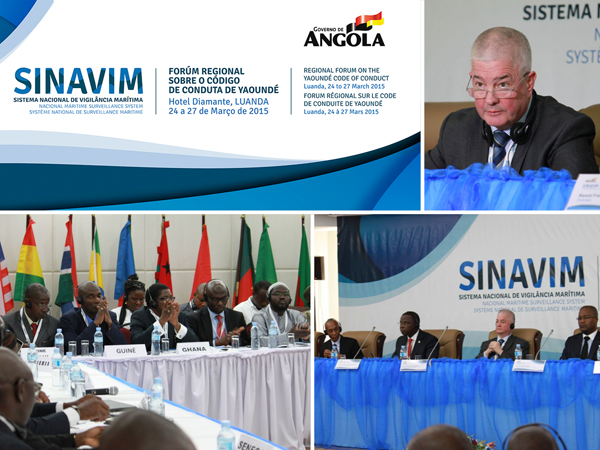A regional workshop organized by IMO, in cooperation with the Government of Angola, is being held in Luanda, Angola (24-27 March), to discuss the implementation of the Code of Conduct concerning the repression of piracy, armed robbery against ships and illicit maritime activity in west and central Africa, through the establishment of the Inter-regional Coordination Centre (ICC), to be based in Yaoundé, Cameroon.
The ICC is expected to play a strategic role in enhancing maritime security in west Africa, where IMO is also targeting capacity-building efforts. The function of the ICC is to put in place a “permanent mechanism of national points of contact in order to foster cooperation and avoid duplication of efforts” amongst the multitude of donors and initiatives.
The ICC will therefore provide a means for establishing cooperation, coordination and communication between Member States of the Economic Community of Central African States (ECCAS), the Economic Community of West African States (ECOWAS), and the Gulf of Guinea Commission (GGC) at the strategic level, including the exchange of information on maritime security issues, best practice and cooperation on capacity building, as well as contributing to countering piracy, armed robbery and other illicit activities at sea such as fisheries crime.
The workshop brings together senior officers from 18 countries at management level, who are responsible for maritime issues and are familiar with international maritime instruments, regional agreements, and their country’s policies on the maritime sector. ECOWAS, the Gulf of Guinea Commission and the ICC are also attending. IMO is represented by Mr. Chris Trelawny, Special Adviser to the IMO Secretary-General on Maritime Security and Facilitation.
The Inter-regional Coordination Centre was initially mandated by the Declaration of Heads of State, at the meeting held in Yaoundé in June 2013, which also adopted the Code of Conduct. The establishment of the ICC took a step forward when, in June 2014, the Economic Community of Central African States (ECCAS), Economic Community of West African States (ECOWAS), and the Gulf of Guinea Commission (GGC) signed an Additional Protocol to establish the centre.
